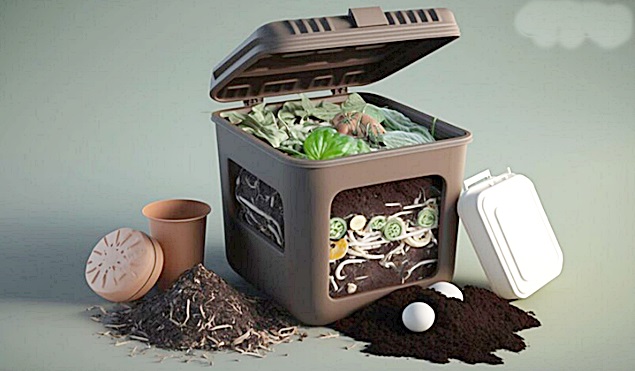1238

Food Waste in Romania: Cultural Habits, Generational Gaps, and Alarming Trends in 2025
A new study conducted by Up Romania, a leading provider of employee benefits, in partnership with Reveal Marketing Research, highlights a persistent and concerning trend: almost half of Romanians continue to waste cooked food, despite increasing awareness of the issue and relatively stable shopping habits compared to last year.
Food Waste Persists Despite Awareness
According to the study, 83% of Romanians buy food several times a week, with 38% doing so daily or nearly every day. However, food waste remains a widespread problem. 46% of respondents say they throw away cooked meals, making this the most commonly discarded food category, followed by bread and bakery products (39%), fruits (28%), and vegetables (27%).
The main causes of food waste remain consistent:
- Over-purchasing and product expiration (43%)
- Cooking excessive portions (39%)
- Refusal to eat leftovers
- Lack of food planning and storage education
Cultural Influence and Generational Differences
The study reveals that 53% of respondents are influenced by the cultural and family values they were raised with—a figure that rises to 65% among those over 55 years old. For many, the principle of “not wasting food” was instilled in childhood, especially among older generations.
Expressions like “think of the hungry children” are remembered by 69% of respondents, especially women and people aged 35–55, emphasizing the role of family and tradition in shaping attitudes toward waste.
Conversely, younger generations (under 35) are less influenced by traditional values—only 43% of 25–34-year-olds and 40% of 18–24-year-olds report that their behavior is shaped by family values.
Who Wastes the Most?
- Young adults (18–34 years) are the most likely to waste food and report the highest financial losses.
- Older adults (55+) are the most efficient: 84% estimate weekly food waste losses under 50 RON, and they continue to uphold traditional norms of resourcefulness.
- Women demonstrate higher involvement in reducing food waste through better planning and sustainable practices.
- Men and younger people are more likely to over-purchase or throw away leftovers.
Despite the frequency of waste, 82% of Romanians use strategies like freezing and proper storage to combat it, and 78% plan their shopping, indicating a growing effort to act more sustainably.
Behavioral Shifts by Age Group
- Older adults (55+) primarily eat home-cooked meals (8.7 out of 10 meals on average), while women also show a high rate (7.5 out of 10 meals).
- Young people (18–24 years) opt more often for eating out (2.1 out of 10 meals) or food delivery (1.8 out of 10 meals), which indirectly contributes to more waste.
This behavioral split shows the growing gap between generations, with younger people leaning toward convenience at the cost of higher waste, while older generations remain more frugal and resource-conscious.
Economic Impact of Waste
The study shows that most Romanians experience weekly financial losses due to food waste, with 66% wasting less than 50 RON, but 3% report losses exceeding 200 RON per week. Once again, young adults are the most affected financially, while older adults report lower losses due to better food management habits.
The Social Pressure Factor
Interestingly, Generation Z (18–24 years) feels the most social pressure when wasting food, with 34% reporting feelings of guilt or judgment, compared to 28% across the general population. This indicates a potential leverage point for campaigns aimed at encouraging more responsible behavior.
“Romania wastes around 2.5 million tonnes of food annually, which equals 150 kilograms per person. It’s a phenomenon with not only economic consequences but also social and environmental ones,” said Elena Pap, European Director at Up Group. “That’s why at Up Romania, we’re actively involved in reducing food waste through initiatives that promote responsible and sustainable consumption.”
Sustainable Habits Gaining Ground
Encouragingly, many Romanians are already adopting practices to combat food waste:
- Proper food storage and freezing (82%)
- Meal planning (78%)
- Portion estimation (76%)
These actions are more frequently adopted by women and individuals aged 35–44, while younger generations (25–34) show lower levels of engagement in such strategies.
“This year’s results confirm that older adults and women are increasingly aware of the need to reduce food waste,” stated Marius Luican, CEO of Reveal Marketing Research. “Although young people still show higher waste tendencies, social pressure and access to information can help drive positive change. Education and awareness remain essential in building a sustainable food culture.”
Conclusion: A Call for Long-Term Change
The findings of this study underscore the complexity of food waste in Romania. While awareness is growing and sustainable practices are gaining traction, generational differences and lifestyle choices continue to influence behavior.
Investing in food education, promoting cultural values of responsibility, and targeting younger audiences with meaningful, accessible solutions will be critical steps in reducing the economic, environmental, and social costs of food waste.





